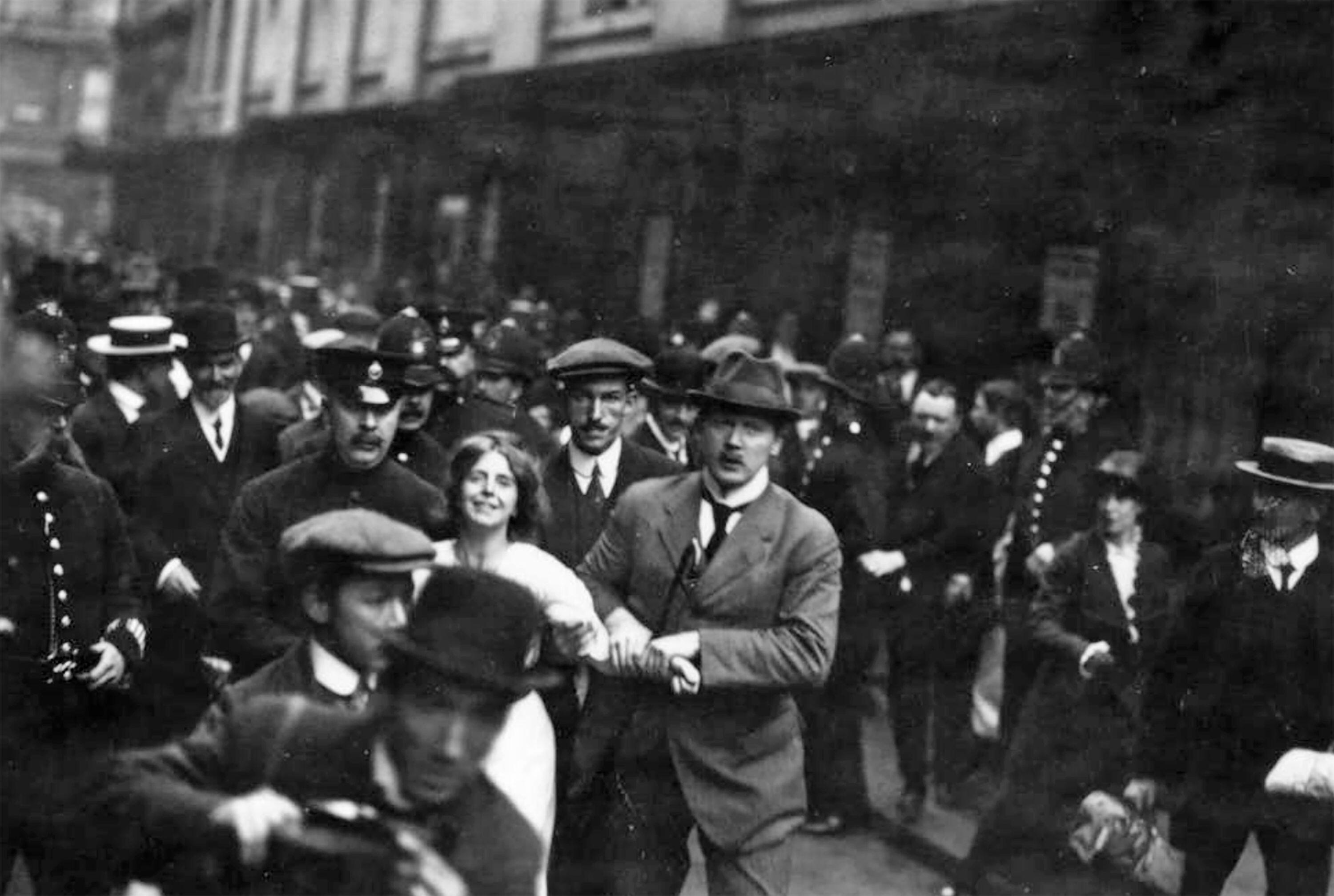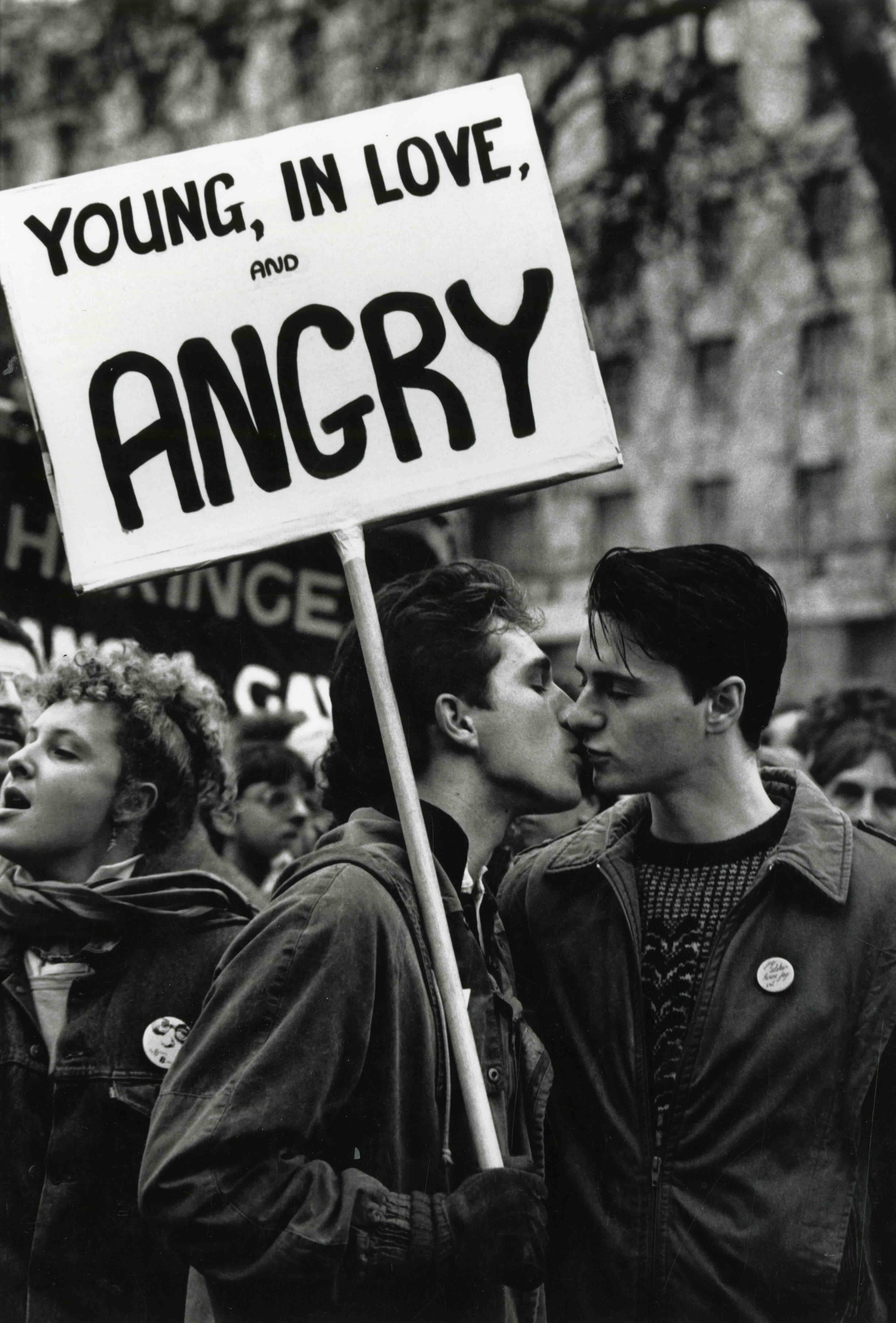Pam Isherwood, Stop Clause 28 march, Whitehall, London, 9 January 1988 © Bishopsgate Institute
The new show sees the filmmaker curate decades of protest and activism throughout British history
Photography has long been a tool of resistance (which is why our latest issue is focused on the subject). From the smuggled images of uprisings to the carefully framed moments of defiance, the camera has long been an accomplice to activism. Resistance, the latest exhibition at Turner Contemporary, explores this enduring relationship between protest and photography, conceived by artist and filmmaker Steve McQueen in collaboration with curator Clarrie Wallis.
Launched in February 2025, Resistance is an ambitious, sweeping account of how acts of dissent have shaped Britain over the last century. From the radical suffragists of 1903 to the 2003 Anti-Iraq War demonstration – the largest protest in the country’s history – this exhibition presents an unflinching visual archive of civil disobedience, political struggle, and collective action. Featuring work by renowned photographers including Vanley Burke, Tish Murtha, Fay Godwin, and Andrew Testa, as well as lesser-known documentarians whose images have been buried in archives, Resistance shines a light on the photographers who stood alongside the protestors, recording history as it unfolded.
Connections between movements emerge in the exhibition’s juxtaposition of different eras: the Gay Liberation Front’s protests against Section 28 in the 1980s are shown alongside the Women’s Liberation Movement, highlighting the shared struggles against oppression. The same spirit of defiance can be found in the anti-fascist battles of the 1930s and 1940s – the legendary Battle of Cable Street – mirrored decades later in the resistance to the far right at the Battle of Lewisham in 1977. Grassroots activism against racism takes centre stage too, with searing photographs of the Black People’s Day of Action in 1981, following the devastating fire at 439 New Cross Road. The protest, one of the first large-scale Black civil rights demonstrations in Britain, was captured in urgent, defiant frames – images that remain powerful reminders of resistance in the face of injustice.
Steve McQueen, whose artistic practice frequently examines power, history, and resistance, describes the exhibition as “a study of how people have challenged the status – a mission that feels especially urgent in today’s political climate.” His vision has been realised through meticulous research, with contributions from leading historians and activists. The exhibition is the culmination of a four-year project supported by the Ampersand Foundation, and its scope reflects the sheer breadth of protest movements that have shaped Britain.
Accompanying the exhibition, a major new book – published by 4th Estate – expands upon these themes, compiling a rich collection of images and first-hand accounts. Edited by Clarrie Wallis with Sarah Harrison, and featuring contributions from figures such as Gary Younge, Paul Gilroy, and Baroness Chakrabarti, the publication extends the dialogue, ensuring that the stories captured in Resistance reach beyond the gallery walls.
England, UK. London. Demonstration against the imminent invasion of Iraq by Stop The War Coalition, the Campaign for Nuclear Disarmament (CND) and the Muslim Association of Britain. Police said it was the UK’s biggest ever demonstration with at least 750,000 taking part, march organisers put the figure closer to two million.
© Andrew Wiard / reportphotos.com. Courtesy of Andrew Wiard.
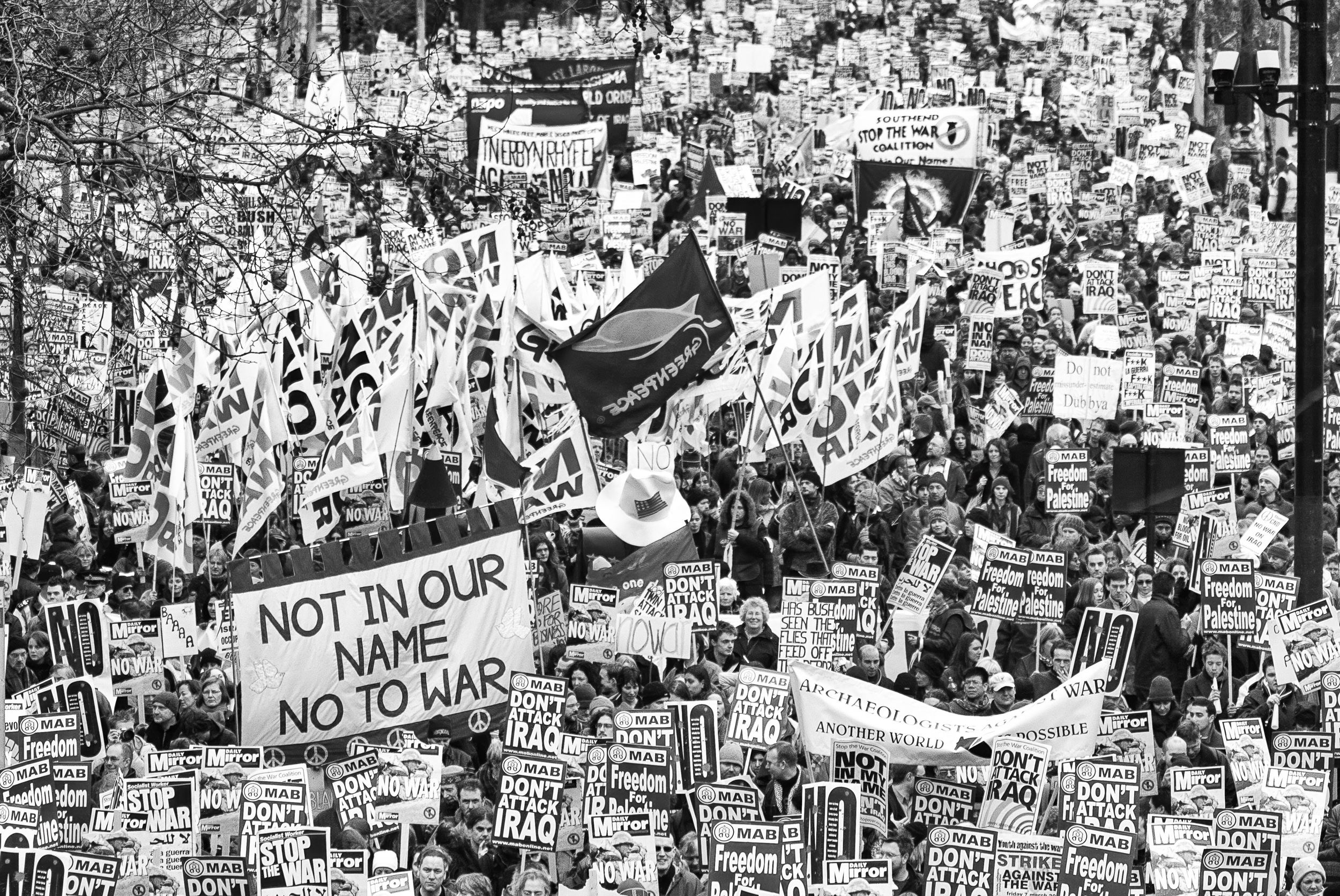
A demonstrator is taken away under arrest by police officers after a mounted baton charge, in East London, on Oct. 4, 1936, to stop fighting between anti-fascists and Sir Oswald Mosley’s blackshirts.
© Alamy
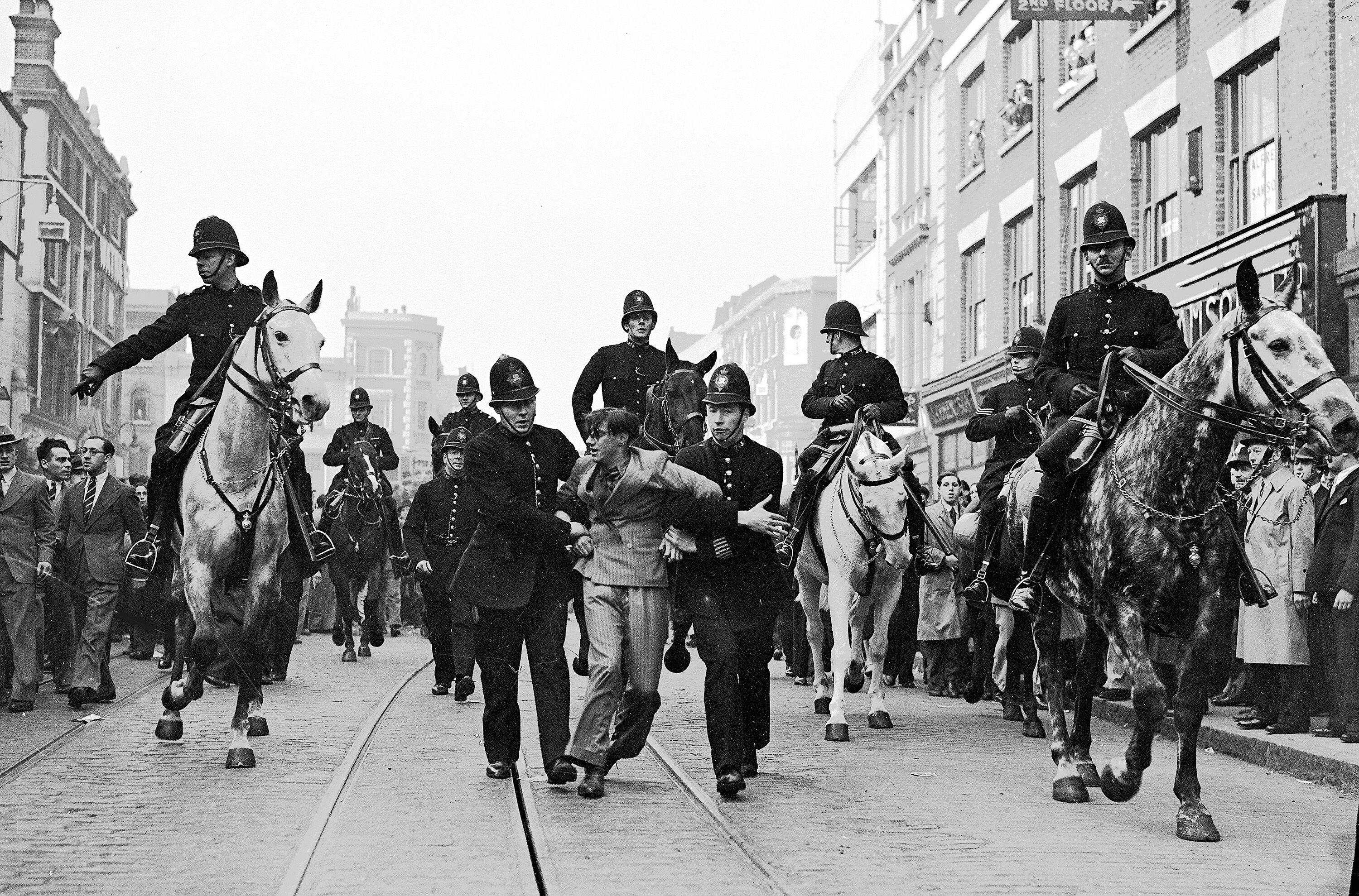
UK. Newbury Bypass. 1996.
Protesters against the construction of the the Newbury Bypass occupy trees to prevent their destruction.
© Andrew Testa
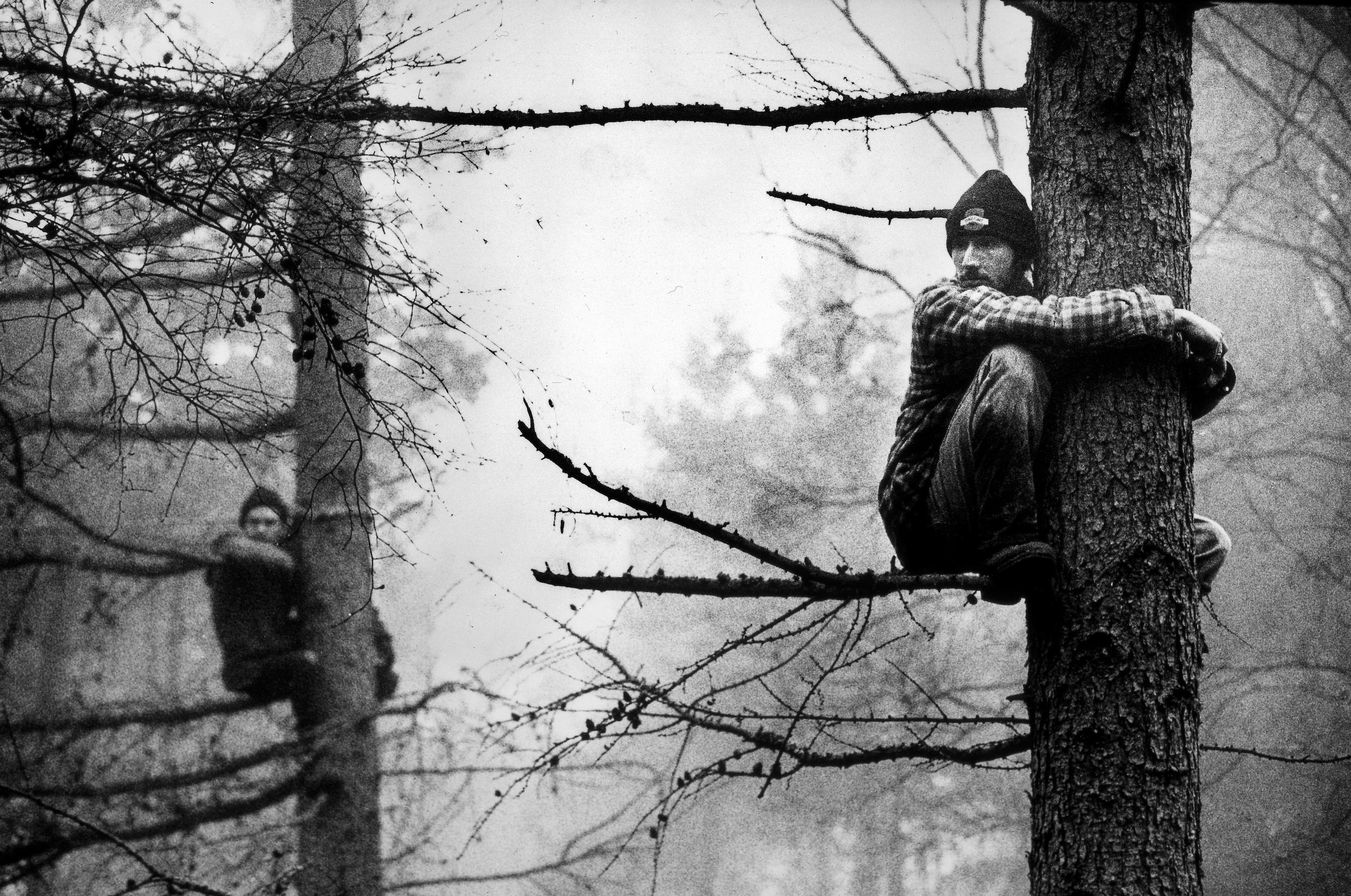
On route from London, this family were taking part in the first protest march to Aldermaston. Many children were among the thousands who set out from Trafalgar Square.
© Henry Grant Collection/London Museum
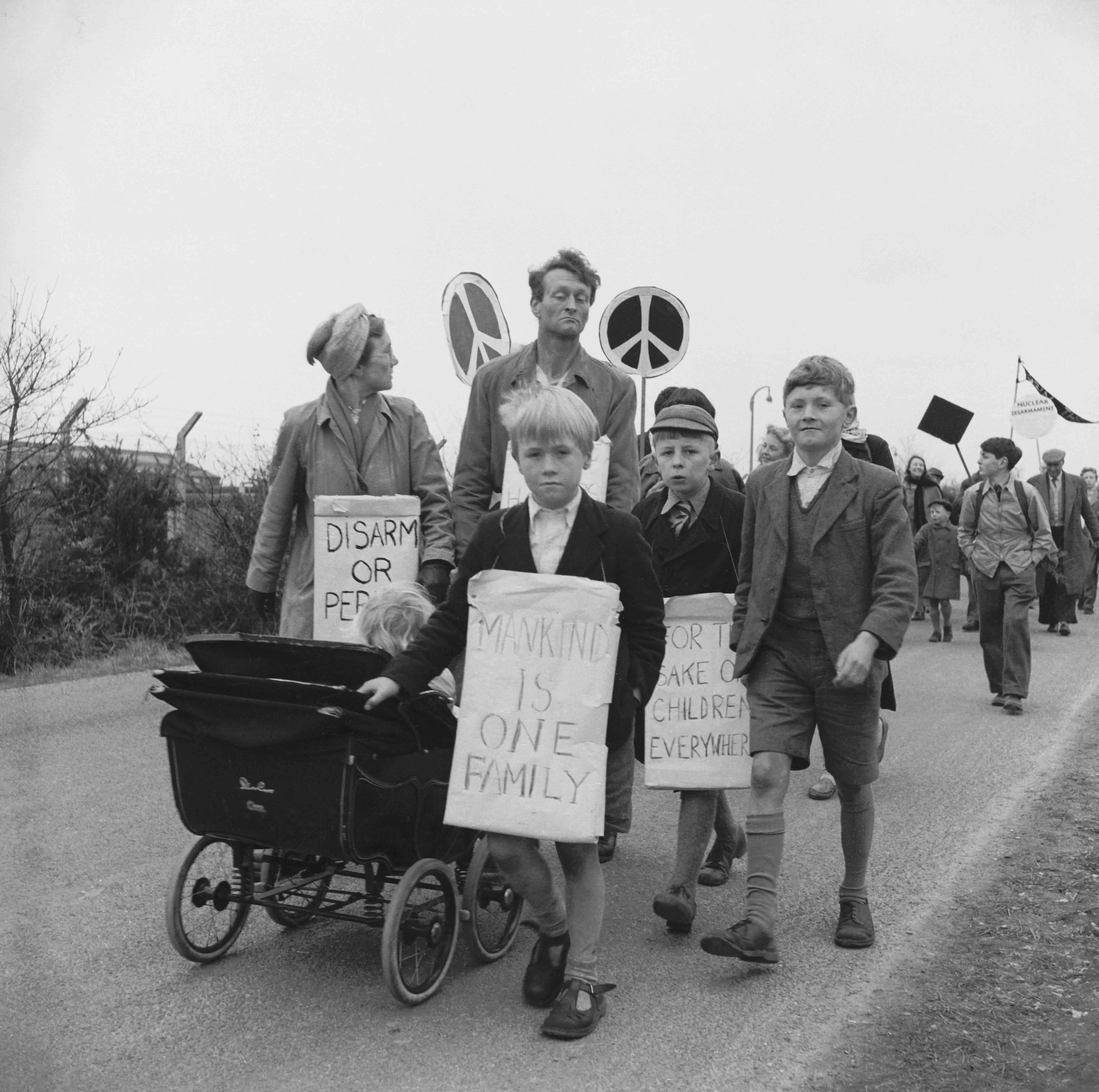
Annie Kenney (an Oldham cotton mill worker) arrested in London, April 1913
Unknown photographer © Alamy
